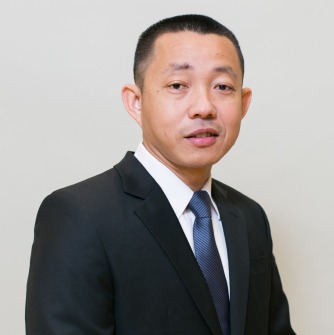Salem, Mass. – A Salem State University professor is co-recipient of the 2023 TIRF James E. Alatis Prize for Research on Language Planning and Policy in Educational Contexts for an article on the Cambodian government’s mother tongue-based multilingual education program.
Sovicheth Boun, of Lowell, and professor of English as a second language and literacy, and coordinator of the Teaching English to Speakers of Other Languages (TESOL) graduate programs, joins Professor Wayne E. Wright and Professor Virak Chan, both of Purdue University, in receiving the prize from The International Research Foundation for English Language Education (TIRF).
The team of authors wrote the article “Implementation of Multilingual Mother Tongue Education in Cambodian Public Schools for Indigenous Ethnic Minority Students,” published in the journal Educational Linguistics. The article examines the Cambodian government’s adoption and expansion of a Multilingual Education (MLE) program and argues that, with limited opportunities for further mother tongue development after grade 3, the students will shift to the national language with limited bilingual proficiency. This shift, the authors say, puts students at risk of losing the ability to speak their indigenous language and weakened connections with their culture.
“I was shocked in a good sense,” Boun, who was born in Cambodia, said upon learning of the award. “These communities have been marginalized for many, many years and so it’s an honor and humbling to contribute to promoting their educational access, and to help promote their cultural heritage and cultural preservation.”
The article recommends actions such as professional development for improving both teacher training and retention. The authors further call for an adoption of a stronger, developmental model of MLE that would enable students to continue to use and further develop their indigenous language and literacy skills in grades 4–6 and beyond.
They also write that Cambodia’s Ministry of Education should focus on improving the infrastructure of schools that are wooden buildings with broken walls, limited seating, and leaky roofs.
“It is my hope that our work and that of others will continue to remind us of the power of language education in the promotion of social justice, equity, inclusion, and the development of multilingual individuals and communities around the world,” Boun said.
About Salem State University
Salem State University, established in 1854, is a comprehensive, public institution of higher learning located approximately 15 miles north of Boston, Massachusetts. One of the largest state universities in the Commonwealth, Salem State enrolls about 7,000 undergraduate and graduate students. It offers 32 undergraduate programs and graduate programs that offer degrees in 24 fields. The university also has a continuing education division that offers both credit and non-credit programs. Salem State proudly participates in the National Study of Learning, Voting, and Engagement and has shown a student voting rate above the national average, earning it a Silver Seal from the ALL IN Campus Democracy Challenge. In 2020, Salem State received Carnegie Community Engagement Classification. The university is designated a Best for Vets College by Military Times.

